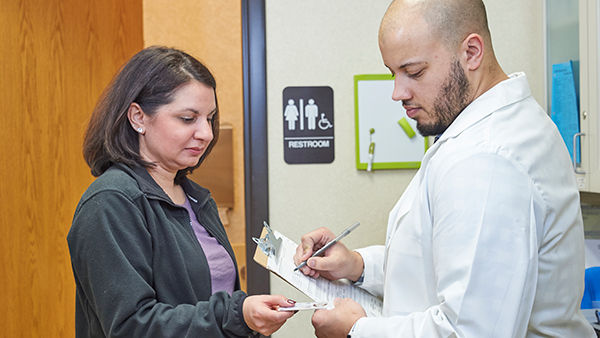What is a Return-to-Duty Test?
Kathy Close, Editor - Transport Safety
March 16, 2021

A return-to-duty test is conducted as a part of the Return-to-Duty process of Subpart O of Part 40. When a driver has a DOT drug and alcohol violation, he or she must complete specific steps in order to resume safety-sensitive functions.
Steps leading up to the test
After a violation under Part 382, the employer must wait for the SAP's approval before proceedng.
The following steps must be taken:
The driver must:
- Be evaluated and prescribed treatment by a Substance Abuse Professional (SAP);
- Complete the prescrived treatment; and
- Have a second SAP evaluation.
The SAP must:
- Determine that the driver has successfully completed treatment;
- Provide a report to the motor carrier stating the driver is ready to return to work and containing the follow-up testing program.
At this point, the motor carrier may instruct the driver to go for a return-to-duty drug and/or alcohol test.
Return to safety-sensitive functions
The motor carrier cannot return the driver to a safety-sensitive function until a negative return-to-duty result is received. For violations occuring since January 6, 2020, the motor carrier or its designated third-party administrator must report a negative return-to-duty test to the CDL Drug and Alcohol Clearinghouse within three business days of the motor carrier learning of the result. The driver's status in the Clearinghouse is no longer "prohibited," as long as the SAP and motor carrier submitted the completed steps of the process.
If the driver doesn't want to move forward with the steps in the return-to-duty process, he or she cannot resume a safety-sensitive function and his or her Clearinghouse record reflects this.
Problems during return-to-duty
If the driver fails the return-to-duty test, the driver would have to the start the SAP process over again. The same is true if the driver fails a future test (e.g., random, post-accident, follow-up) or otherwise engages in prohibited behavior (e.g., refusal to test, acutal knowledge).
Note that a return-to-duty drug test is performed under direct observation. If the driver refuses to cooperate with the collection process, this is a refusal to test, which is a testing violation.
Scenarios mistaken for return-to-duty testing
A return-to-duty drug or alcohol is NOT conducted when:
- A driver is rehired. This is a pre-employment test.
- A driver returns after a leave of absence. This is a pre-employment test.
- A driver renews a medical examiner's certificate. This is a non-DOT test which falls under company policy.
Let J. J. Keller help with your return-to-duty process or call 888.473.4638 for more information.